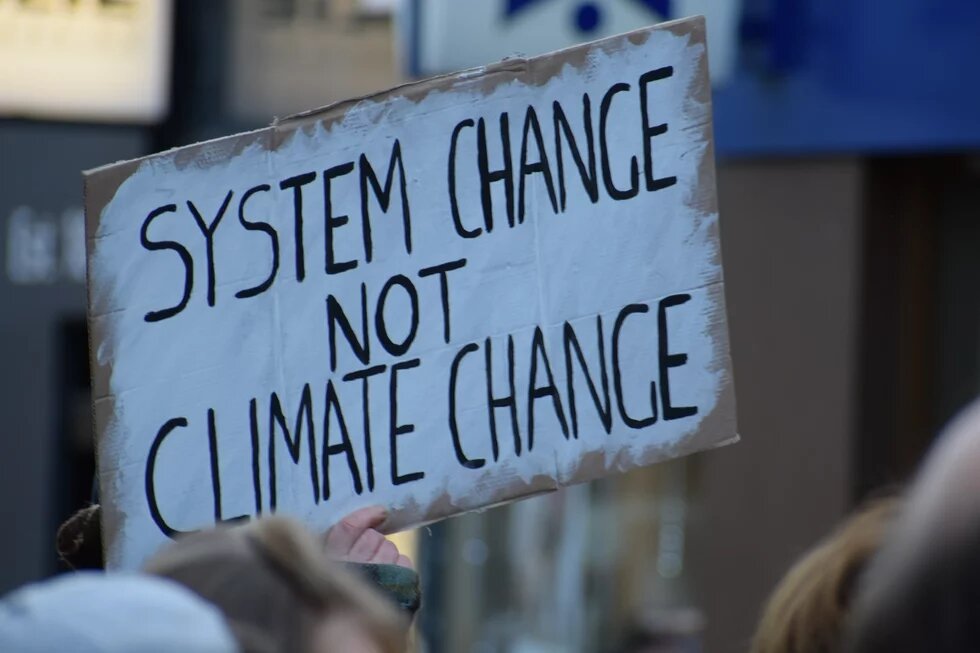The world cannot afford another arms race that will divert resources from poverty, pandemic and climate crisis to defence.

In response to Russia’s invasion of Ukraine, Tesla CEO Elon Musk has called on the United States to increase its domestic oil and gas production to cut-off imports from Russia.
"Hate to say it, but we need to increase oil & gas output immediately. Extraordinary times demand extraordinary measures," Musk tweeted on 4 March. He further added, "Obviously, this would negatively affect Tesla, but sustainable energy solutions simply cannot react instantaneously to make up for Russian oil & gas exports."
While new oil and gas wells in the US might not negatively impact Tesla (Tesla has just 2 per cent of passenger car market share in the US), his call has undoubtedly given an impetus to the oil and gas interests. After all, who could be the best ambassador of fossil fuels in present times than the self-professed climate-champion like Musk? Musk’s tweet was widely supported and promoted by the fossil fuel companies of the US and other Western countries who see Russia's invasion as an opportunity to ramp up domestic coal, oil, and gas production.
Since the Paris Agreement, there has been much domestic and international pressure on the EU and the US to reduce fossil fuel production and consumption to combat the climate crisis. While some European countries have put a moratorium on new mines and wells, others have announced targets to end fossil fuels. For example, Germany and Greece have decided to phase out coal by 2038 and 2028 respectively. Denmark has ended all new oil and gas exploration in the North Sea, and Ireland and Spain have introduced legislation to ban licenses for new oil and gas wells. US President Joe Biden has also promised to end new drilling on federal land (which he has not implemented so far). The Russian aggression, however, has given the fossil fuel interests an excuse to demand the opening of new facilities.
Decarbonization will not be fast enough
But responding to this demand will be highly detrimental for climate action, an issue which requires global effort on war footing as well. Opening new coal mines and oil and gas wells in Europe and the US would mean that these countries, who are historically the largest climate polluters, will not be able to decarbonise their economies fast enough to meet the 1.5 OC goal agreed at Glasgow last December. This, in turn, will prompt other major fossil fuel producers like Saudi Arabia to shelve their oil and gas phase-down plan as well. Countries like India and China will also curb their climate ambition. Therefore, the Russia-Ukraine conflict will at best delay the implementation of the Paris Agreement by a few years by postponing the decarbonisation plans of countries; at worst, it could derail the climate actions much longer by exacerbating global discord and shifting government expenditures to defence.
The world already spends too much money on defence. Defence is one of the few sectors, which saw an increase in spending even during the COVID crisis. According to Janes – a global agency for open-source defence intelligence – the global defence spending rose by 1.9 per cent in 2020 and reached US$1.93 trillion – an amount equivalent to two-thirds of India's GDP. In other words, the current annual global defence budget is sufficient to meet half of the clean energy investments required to reach Net Zero Emissions by 2050.
But most analysts predict that the present crisis will further boost spending on arms and ammunitions in 2022 and beyond. Germany, one of the largest contributors to climate finance to developing countries, has tripled its defence budget to $160 billion in the wake of the Russian invasion. Germany aims to raise its annual spending on defence from around 1.5 per cent to 2 per cent of GDP by 2024. The other non-US NATO members are also likely to ramp up their spending to 2 per cent of GDP, which would increase global defence spending by $100 billion. The US, which alone accounts for about 40 per cent of the global defence spending, will also hike its budget. China, to counter the US, has already announced an increase in spending by 7.1 per cent this year. In turn, Japan plans record spending in 2022, and India’s 2022–23 defence budget ($ 70.2 billion) is almost 10 per cent over the initial allocation in 2021–22. We might, therefore, be entering a new phase of the arms race, which will disrupt all developmental and environmental plans that the world ought to be focussing on – from meeting the sustainable development goals, to ending the pandemic, and combating the climate crisis.
The wars of the 21st century have far-greater ramifications than previous wars. In a highly interconnected and interdependent world, a regional conflict like Russia-Ukraine might jeopardise the global collective action for addressing the climate crisis, which according to scientists we only have 10 years to solve. It could delay the world’s recovery from COVID, by hindering the vaccination drive for about 40 per cent of the global population who are not yet fully vaccinated.
We, therefore, can't afford wars and another global arms race because this time it would involve too many global powers with enough money to arm themselves to the teeth. The tangible and intangible costs will be of a far greater magnitude than the cold war. Hence, it is in the interest of all to ensure that conflicts are resolved by peaceful means. Maybe the time has come to push for a global moratorium on defence spending so that we can address real and urgent problems facing the world.